The year in national politics: A tumultuous new era

The Los Angeles Times covered news all around the world. This video highlights some of our staff’s most engaging visuals and storytelling from 2017.
The presidential inauguration and its aftermath
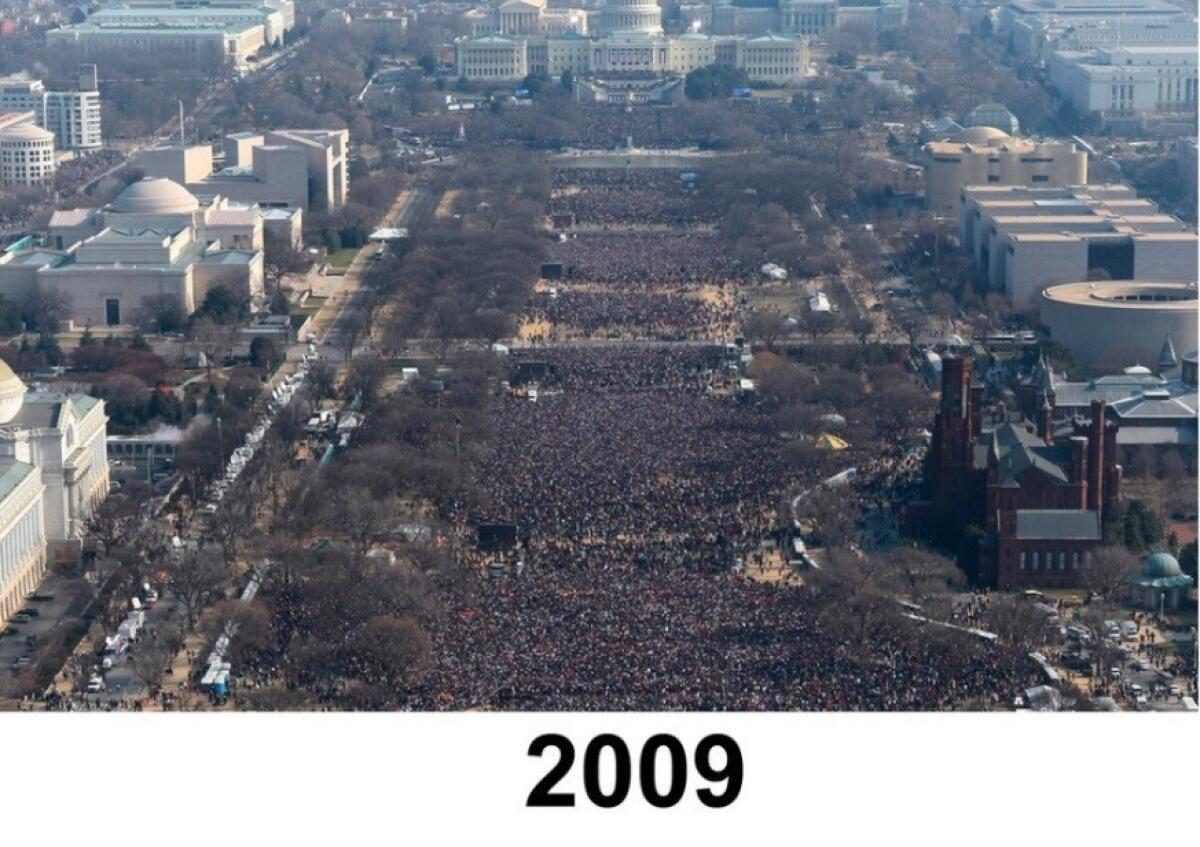
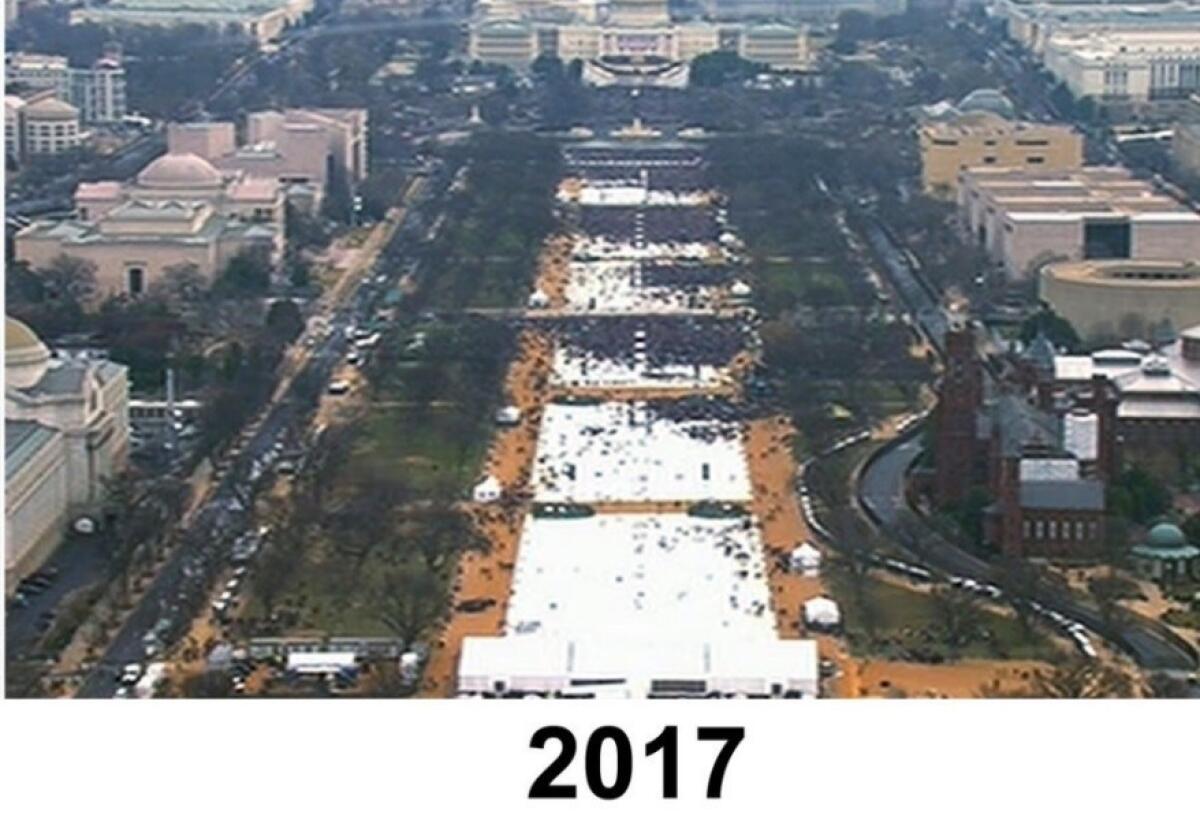
With his Jan. 20 inauguration as the 45th president, Donald Trump signaled that the tone of his campaign would carry over into his presidency: combative, alternately gilded and populist, and challenging of both norms and facts. His 16-minute inaugural address was notably dark and divisive — he spoke of the “American carnage” he’d inherited as President Obama and other predecessors sat stone-faced nearby. One of the most enduring memories is Trump’s complaint the next day, echoed by his press secretary, that the media failed to report that his crowd was the largest ever to witness a swearing-in, a claim easily refuted by photographs and other evidence and widely mocked.
Questioning and revamping U.S. trade policies
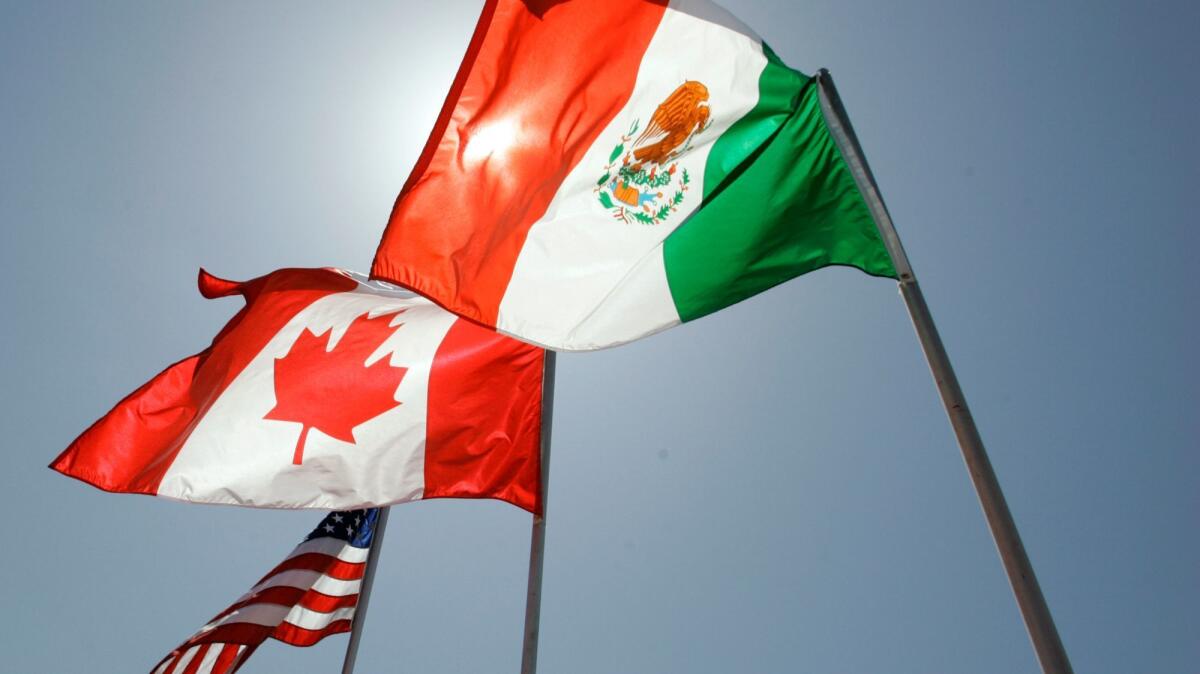
President Trump moved quickly to make good on his pledge to revamp U.S. trade relations by withdrawing just a few days after his inauguration from the 12-nation Trans-Pacific Partnership, which was negotiated by Obama but never ratified by Congress. He next took aim at the North American Free Trade Agreement, known as NAFTA, reopening negotiations with Canada and Mexico that gained little traction. Whether he really will discard long-standing agreements is unclear. Some experts warned that Trump’s obsession with lowering U.S. trade deficits was misguided.
The many iterations of the travel ban
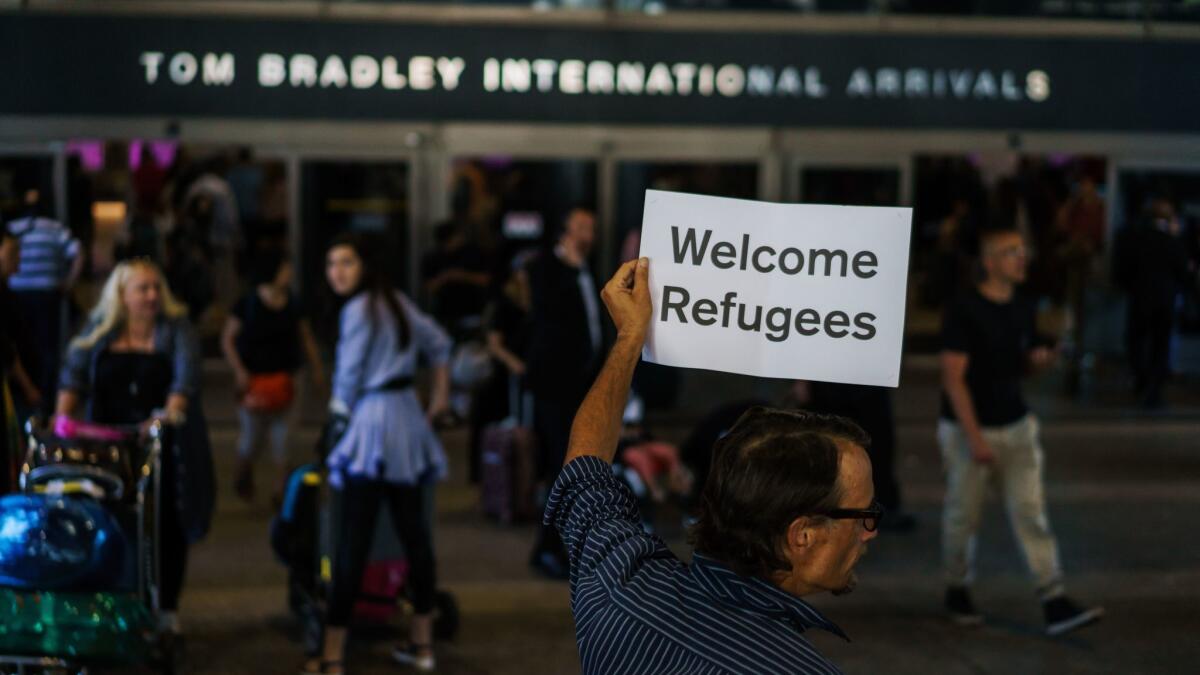
Trump’s promise to temporarily ban all Muslims from the U.S. was among the most incendiary of his campaign, and his executive order, issued in late January, to restrict travel from several mostly Muslim countries was widely seen as an effort to put that promise into action. After its chaotic introduction, a series of federal judges blocked the ban from taking effect. In March, the administration issued a new version of the ban, designed to be less legally vulnerable. It, too, hit difficulties. Eventually, the Supreme Court found a compromise, allowing part of the ban to take effect. In the fall, the administration issued another version, which the Supreme Court upheld in early December.
A new Supreme Court justice
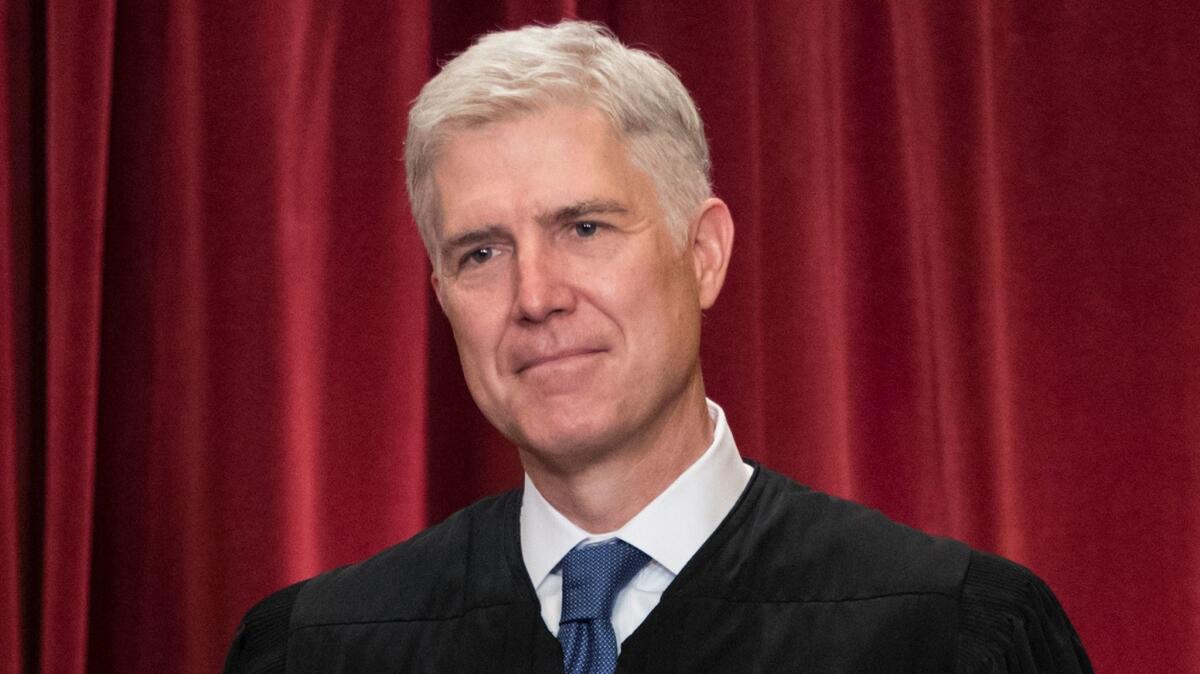
Trump used a rare opportunity to immediately fill a Supreme Court vacancy, naming federal appeals court judge Neil M. Gorsuch to replace the late Justice Antonin Scalia, who died in early 2016. Republican senators had refused to even consider President Obama’s appointee, gambling that they would win the White House and be able to fill the seat with a conservative. Gorsuch was confirmed by the Senate, but only because Republicans broke with tradition and abolished the 60-vote barrier that had been required for previous Supreme Court justices. The new justice quickly had an impact on the court, moving it to the right on religion, guns and gay rights.
Michael Flynn resigns and later pleads guilty to lying to the FBI
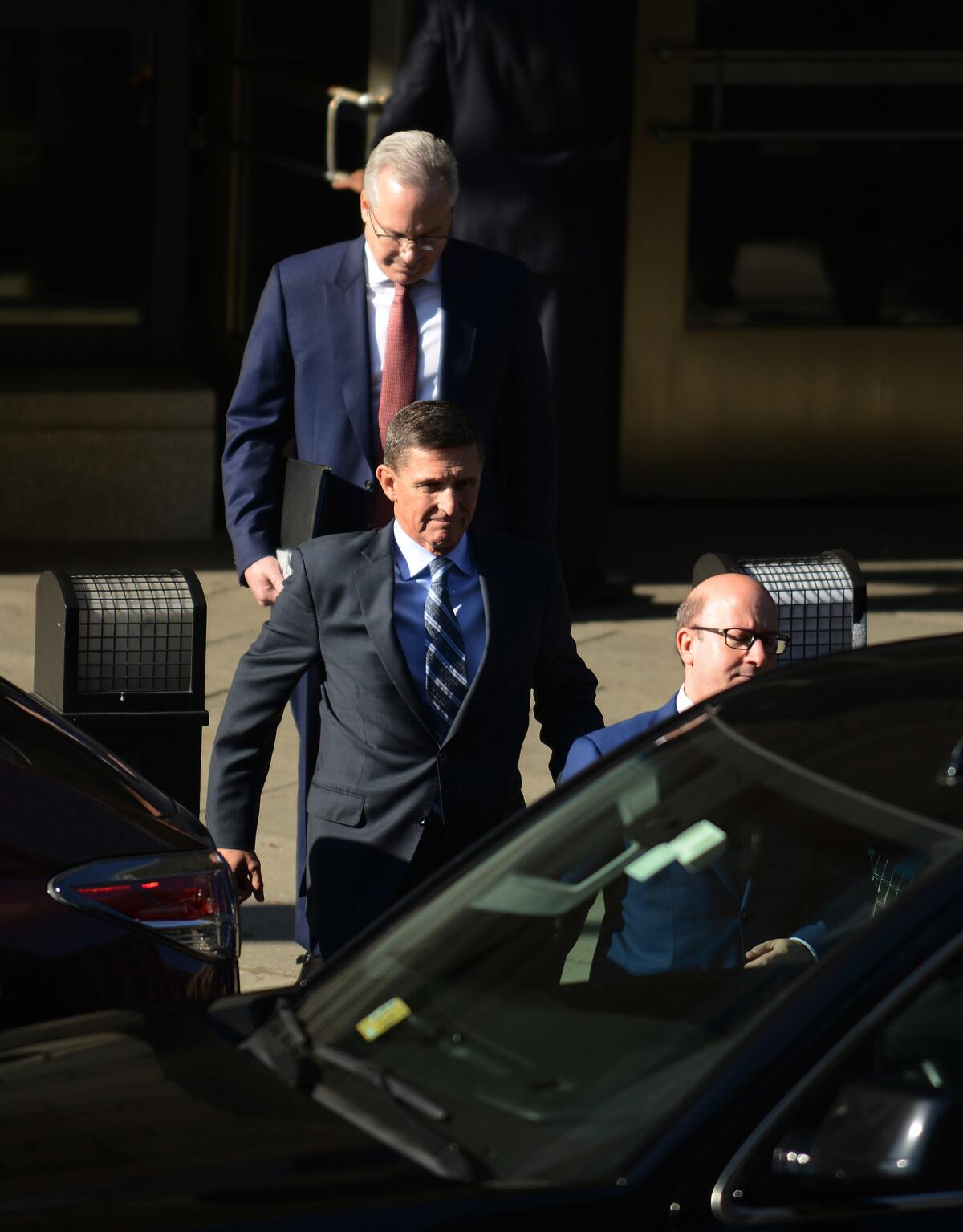
Michael Flynn, Trump’s first national security advisor, was forced to resign after only 24 days on the job. His immediate problem: reports indicating he had misled Vice President Mike Pence and other White House officials about his meetings with the Russian ambassador to the U.S. But his long-term problems — Flynn’s contacts and contracts overseas — put him in the cross hairs of the special counsel investigation into Russian interference in the 2016 election. On Dec. 1, Flynn pleaded guilty in federal court to one count of “willfully and knowingly” making “false, fictitious and fraudulent statements” to the FBI about his communications with Russia’s ambassador in December 2016, after Trump had named Flynn his national security advisor.
Trump fires FBI Director Comey; Mueller takes over Russia investigation
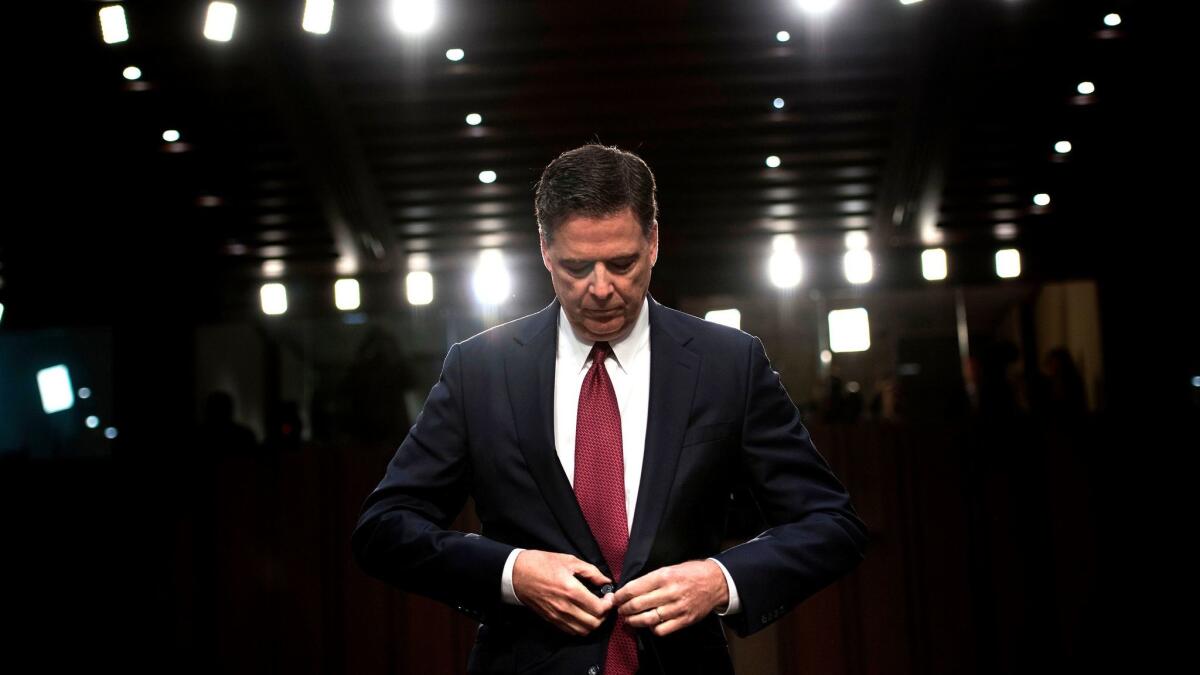
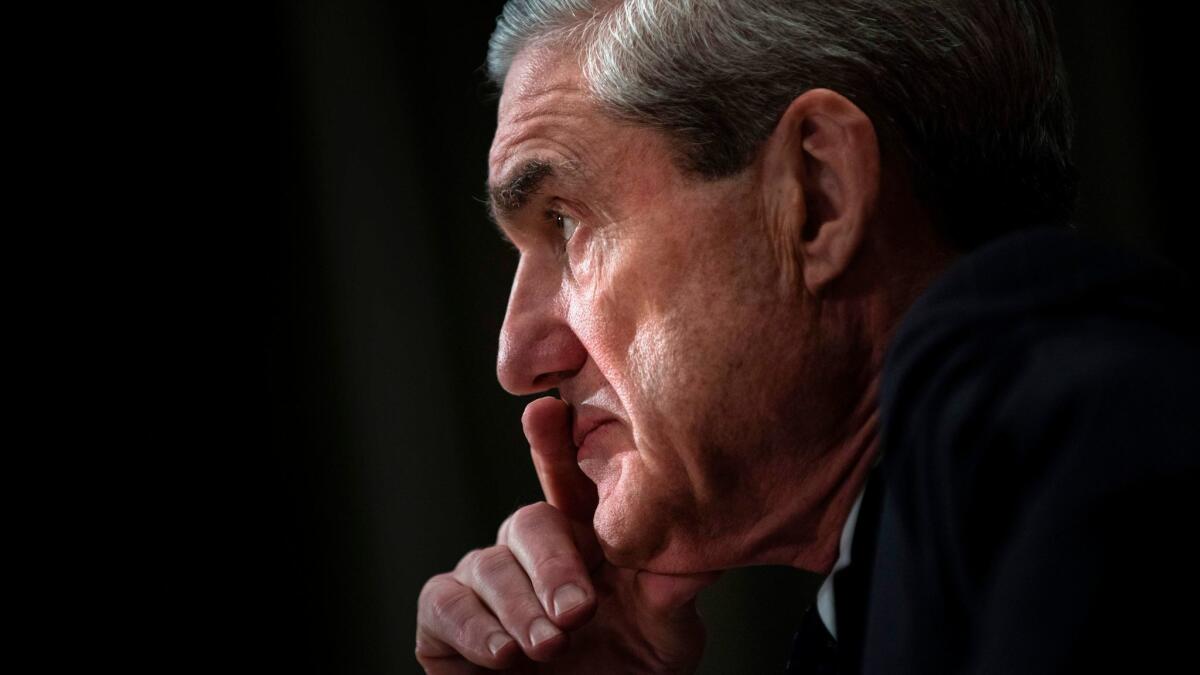
In May, Trump sacked FBI Director James B. Comey amid an investigation of the Trump campaign’s possible complicity with Russia’s election meddling. Initially, the White House said Trump had followed the advice of Justice Department officials. But in an NBC interview a few days after the firing, Trump said he’d planned to fire Comey, whom he called a “grandstander,” regardless of advisors’ recommendation, suggesting he acted because of his unhappiness with “this Russia thing.” That was in contrast to his staff’s claim that Comey was dismissed for mishandling the 2016 inquiry of Hillary Clinton’s use of a private email server as secretary of State. About a week after Comey was fired, the Justice Department named a special counsel – Robert S. Mueller III, who preceded Comey as FBI chief and served 12 years on the job — to take over the inquiry into possible coordination between the Trump campaign and Russia to swing the presidential election in Trump’s favor.
Reversing environmental policies

Before taking office, Trump derided the science linking human activity to global warming as a “hoax.” So it wasn’t a total surprise when he announced the U.S. would cease participation in the Paris agreement on climate change, the 2015 pact that set country-by-country goals for reducing fossil fuel emissions. Still, the announcement came with some suspense as U.S. allies had heavily lobbied Trump to stick with the accord. Every country except the U.S. — nearly 200 in all — have signed the accord, leaving China as the world leader in combating climate change. The withdrawal from the Paris agreement is the highest-profile item on a long list of Obama-era environmental policies that Trump has taken steps to reverse.
Republicans try to repeal Obamacare
After several tries, the House in May passed a bill that not only repealed much of the 2010 law, but also would have severely limited federal payments for the Medicaid program. But the effort repeatedly stalled in the Senate when a few Republicans refused to go along with plans that would have left millions more Americans without health insurance. The Senate tried again — unsuccessfully — in the summer and early fall.
Trump reacts to the violence in Charlottesville
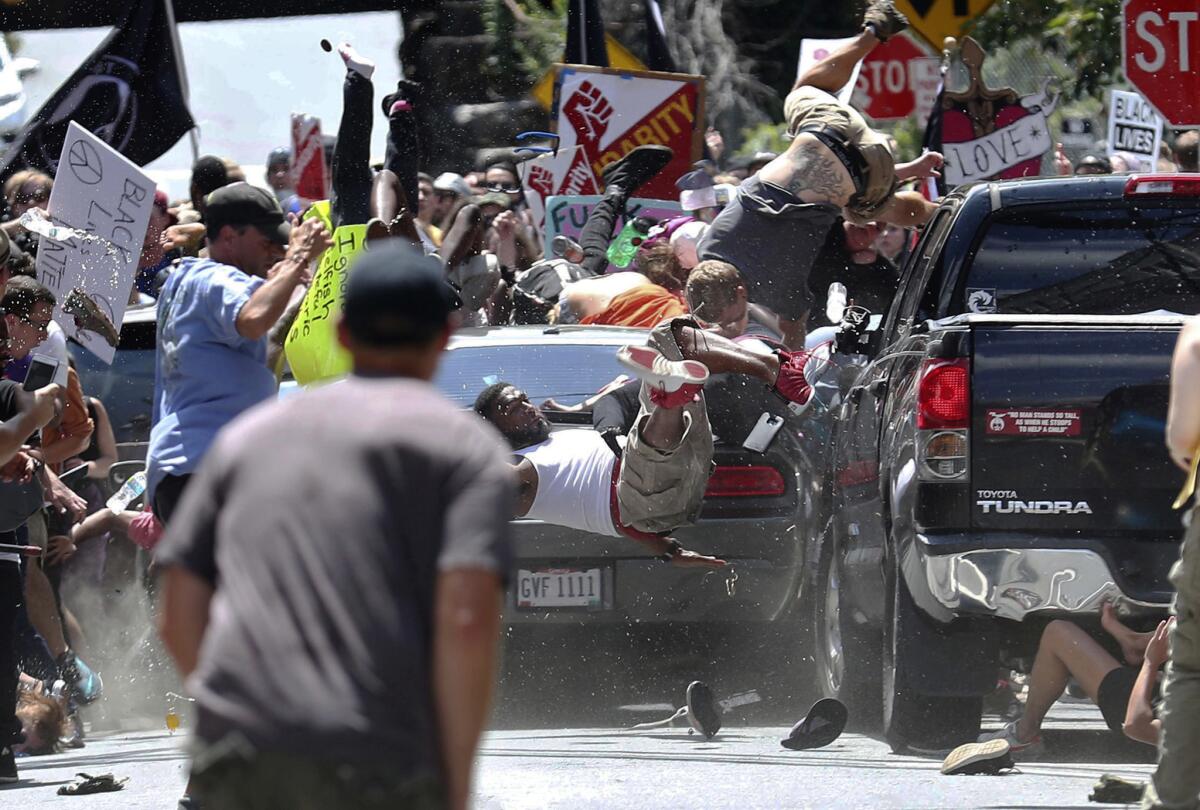
Trump ignited a national furor in August with his remarks after a rally by white supremacists in Charlottesville, Va., turned bloody, causing the death of a woman protesting their presence. Initially he blamed “many sides.” After a bipartisan outcry, two days later he criticized the neo-Nazis, only to return the next day to his original stand: gun-wielding racists and anti-racists were equally at fault. “You also had people that were very fine people on both sides,” he said. Trump’s response caused widespread condemnation, resulting in resignations of appointees to White House advisory boards.
Denouncing North Korea’s Kim as ‘Rocket Man’
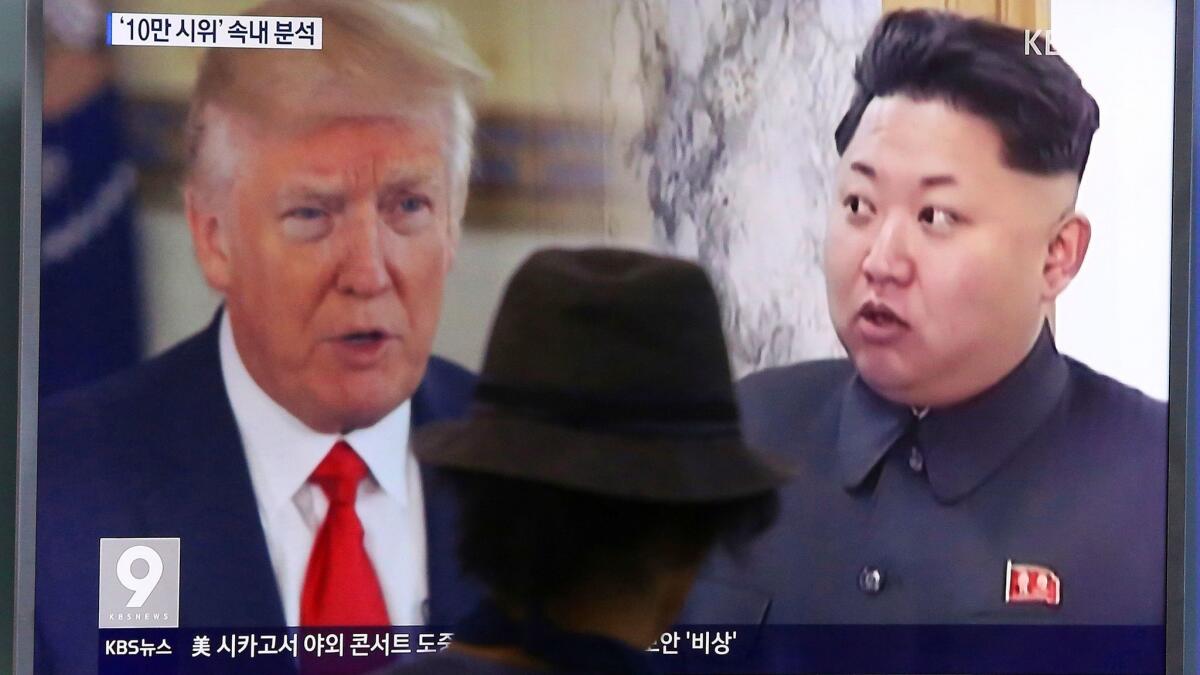
Before he took office, Trump was warned that North Korea was a foreign policy nightmare. Since then, he and Pyongyang’s ruler, Kim Jong Un, have traded crude insults. Trump denounced the North Korean leader as “Rocket Man” at the U.N. General Assembly on Sept. 19. Kim responded by mocking “the mentally deranged U.S. dotard.” But beyond the insults, the danger is real as Kim continues to test nuclear weapons and long-range ballistic missiles and Trump boosts military forces in the region.
Trump's Twitter war with NFL players
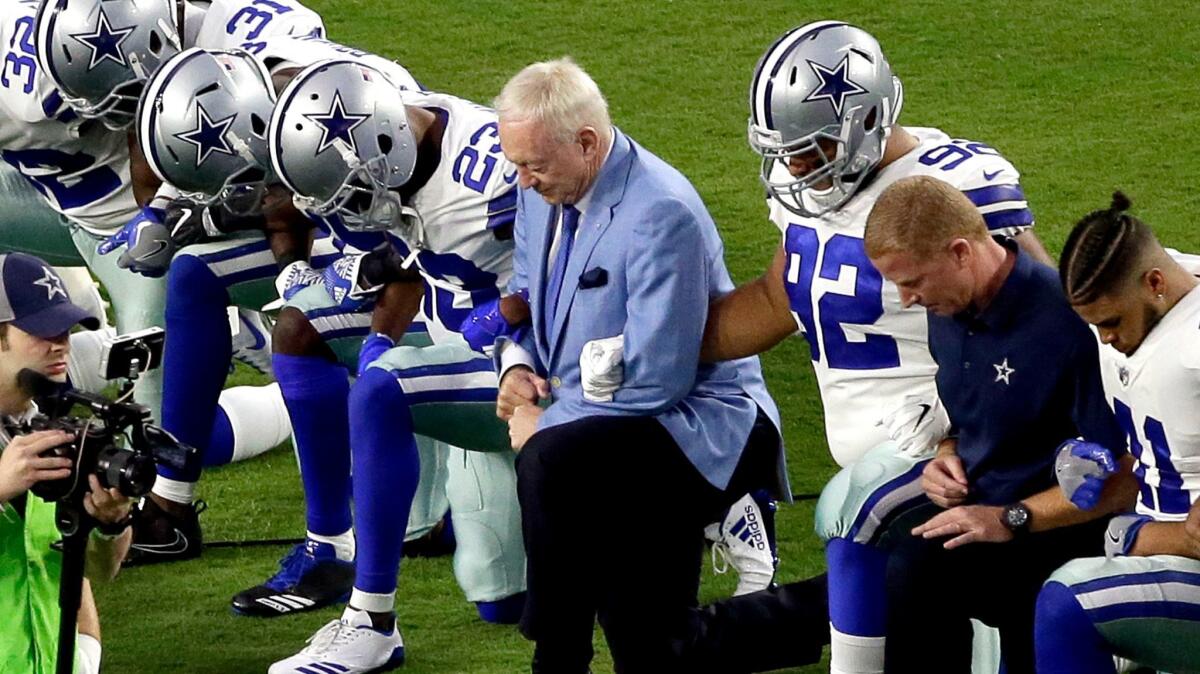
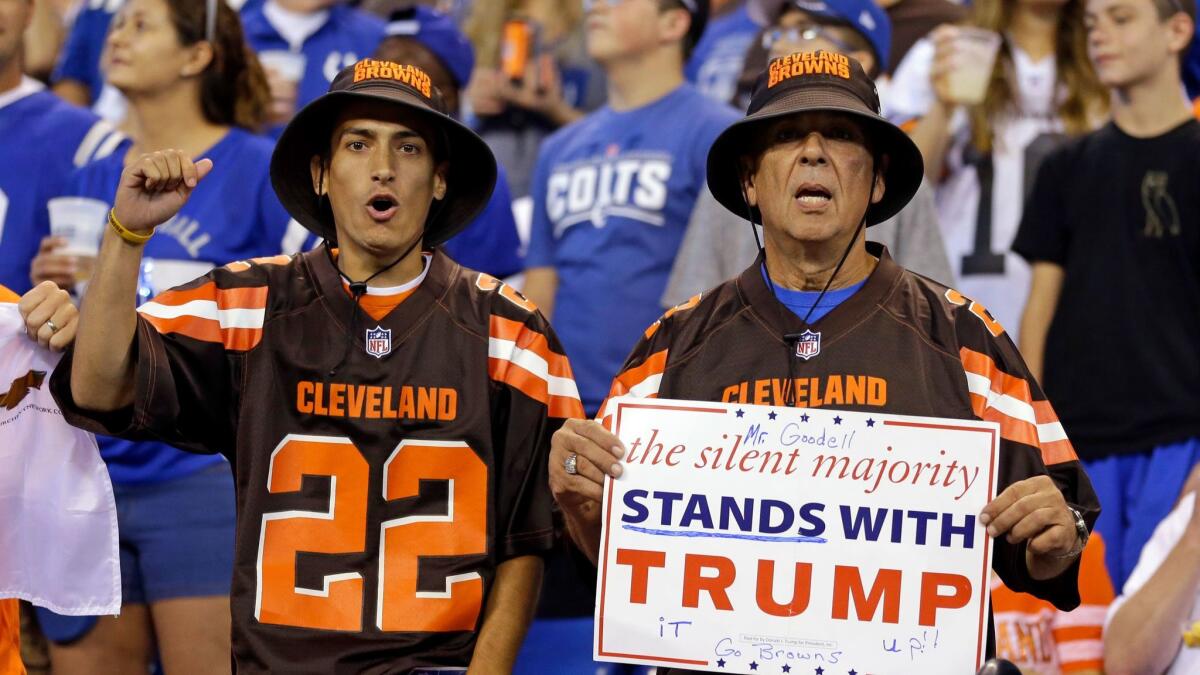
The president has repeatedly dived into culture wars, frequently on topics with racial overtones, and typically using language that in previous administrations would have been considered unpresidential. His Twitter war against NFL players who knelt during the playing of the national anthem combined all those elements. Trump began the battle during an Alabama campaign rally in September, denouncing the players, mostly African American, who had been kneeling during the anthem to protest social injustice and racial inequality.
More turnover in the administration
The first year of the Trump administration saw more turnover at top ranks, in shorter time, than in any recent presidency. Eight months in came the first Cabinet casualty: Tom Price resigned as secretary of Health and Human Services after news broke that he used costly private jets for travel at taxpayer expense. The summer saw a series of shake-ups. White House Press Secretary Sean Spicer left in late July. Chief of Staff Reince Priebus soon followed Spicer; both opposed Trump’s hiring of Anthony Scaramucci as communications director. Before he even officially started, “the Mooch” was fired at the insistence of new Chief of Staff John F. Kelly after profanely assailing Priebus and chief strategist Stephen K. Bannon to a reporter. Weeks later, Bannon also was out.
The most notable firings and resignations in the Trump administration »
Trump’s Republican critics go public
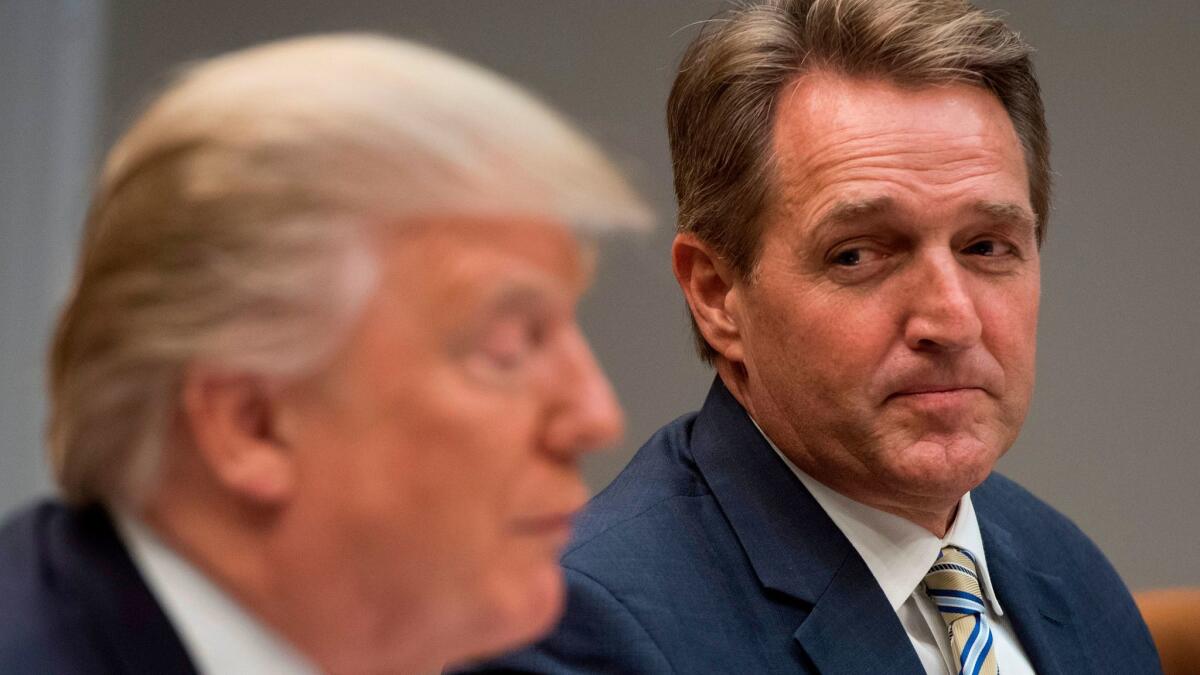
For a time, Trump's election papered over the split his candidacy opened between pro-Trump partisans and establishment Republicans. But by October the establishment’s criticisms, which had been mostly private, became extraordinarily public: Within eight days, three Republican senators and the previous Republican president attacked Trump’s style and stewardship. On Oct. 24, Sen. Jeff Flake excoriated him from the Senate floor as “reckless, outrageous and undignified.” Sen. Bob Corker said Trump would be remembered for “the debasement of our nation.” This came days after Sen. John McCain and former President George W. Bush delivered speeches that didn’t name Trump, but plainly were directed at him.
Special counsel brings first indictments
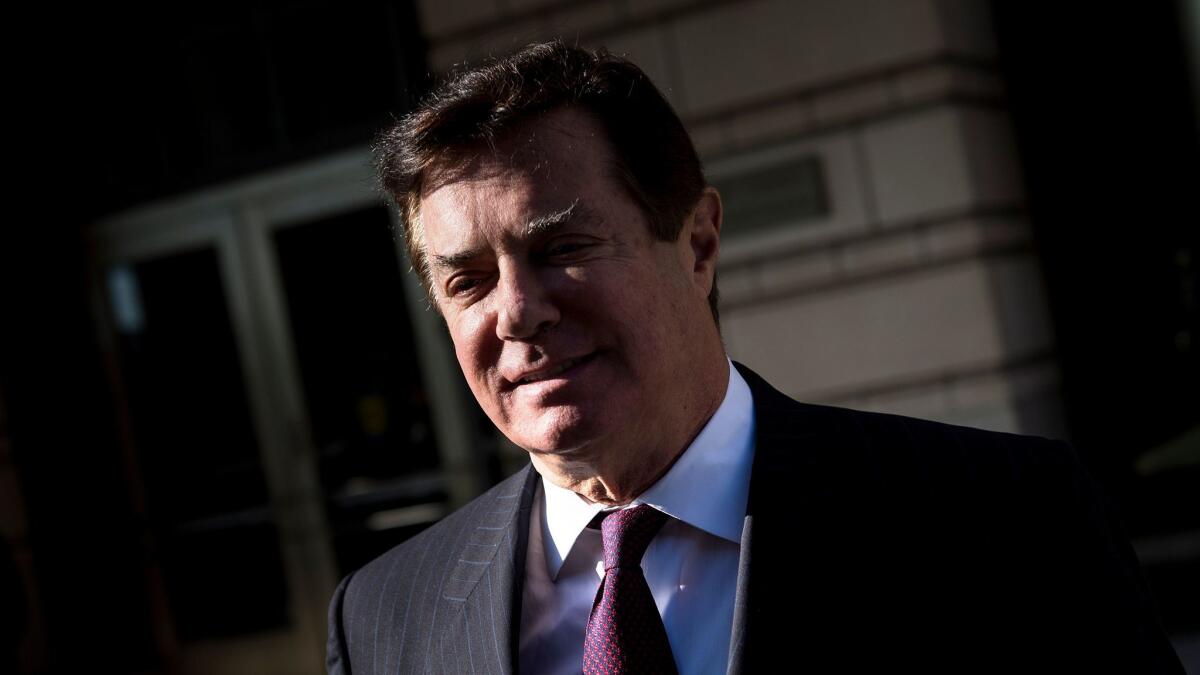
The special counsel investigation into Russian meddling in the 2016 election produced its first three indictments on Oct. 30 — and they included some surprises. Trump’s former campaign manager, Paul Manafort, and his deputy, Richard Gates, were charged with conspiracy, fraud and money laundering in an alleged scheme unrelated to the election. The surprise came a few hours after the indictments were released when another former campaign aide, George Papadopoulos, pleaded guilty to lying to the FBI, and court papers showed he secretly had been helping prosecutors.
Democrats score a victory in Virginia
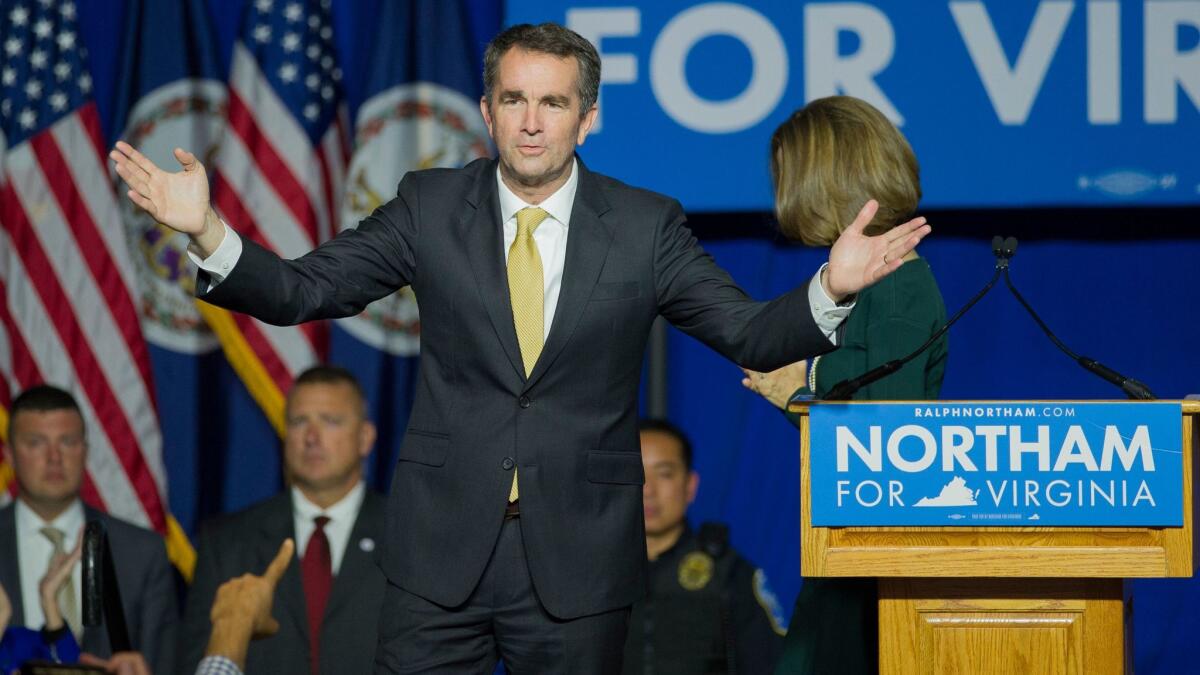
Throughout the year, Democrats have said voters were outraged by Trump, were highly motivated and are eager to vote. What they couldn’t point to were high-profile election victories. The November election for governor in Virginia changed that. Not only did Ralph Northam win a larger-than-expected majority to become the state’s next governor, but Democrats also won several additional seats in the lower house of the state Legislature, leading to a possible 50-50 tie. tie nearly seizing the majority. In both parties, strategists saw the Virginia vote as a sign of Republican weakness, especially in suburban areas, that could endanger the party’s congressional majority in 2018.
GOP delivers the votes on tax cuts
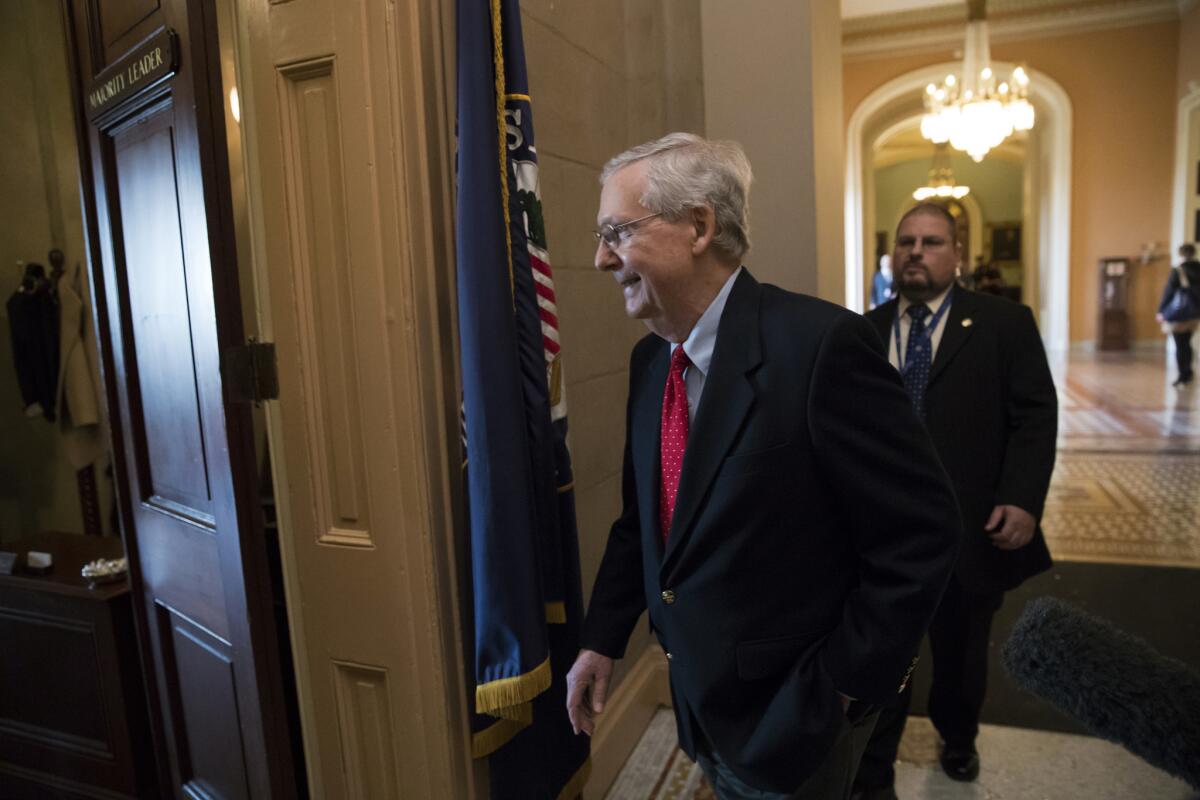
On the heels of their failed Obamacare repeal, Republicans wanted to score a political win on tax reform. Earlier this month, Senate Republicans put Congress on track to deliver. The ambitious package, opposed by Democrats as a giveaway to the wealthy that will pile on the national debt and raise taxes for many among the middle class, challenges GOP orthodoxy against deficit spending. Even after accounting for future economic growth, the plan is estimated to add $1 trillion to the deficit over 10 years, despite Republican promises that the tax cuts will pay for themselves. By late December, a tax bill was on its way to President Trump.
Get the L.A. Times Politics newsletter
Deeply reported insights into legislation, politics and policy from Sacramento, Washington and beyond. In your inbox three times per week.
You may occasionally receive promotional content from the Los Angeles Times.



